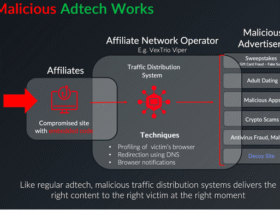
Organizations must stay informed about their online presence and manage their reputations effectively. Setting up a Google Alert is a valuable way to monitor brand mentions, track industry trends, and monitor competitors—all in one easy-to-use platform.
What Is Google Alerts?
Google Alerts is a free tool that lets users monitor specific search terms and receive email notifications about real-time mentions. It helps you stay updated on who engages with your published work online. Using a Google email address to set up alerts keeps notifications organized and separate from your regular emails. Google Alerts is crucial for media monitoring, helping businesses and B2B marketers stay informed about industry topics, competitors, and trends. It tracks mentions of your brand and other keywords, providing valuable insights and content ideas for marketing strategies.
Benefits of Google Alerts
Google Alerts offers numerous benefits for individuals and businesses. By setting up alerts, you can stay informed about relevant topics, monitor your brand, and monitor competitors and industry trends. This tool provides real-time notifications, ensuring you never miss important updates that could impact your business.
Monitor Your Brand and Online Presence
Google Alerts lets you track mentions of your name, business, or brand. This helps you stay on top of online conversations, respond quickly to customer feedback, and protect your reputation. You can engage with your audience and build your brand with email notifications for brand mentions. This proactive approach helps address negative feedback quickly and encourages positive interactions, enhancing your brand image.
Keep An Eye on the Competition and Industry Trends
Google Alerts also allows you to monitor your competition and industry trends. You can stay informed about their marketing tactics and new releases by setting alerts for competitors’ names or products. This helps you stay ahead of the competition and identify new business opportunities. Tracking industry news and trends keeps you updated on the latest developments, enabling you to adapt your strategies and remain competitive.
Stay Informed About Relevant Topics and News
You can use Google Alerts to stay informed about relevant topics and news. Setting alerts for specific keywords means you’ll receive notifications whenever new content is published. This helps you keep up with the latest trends in your industry and provides valuable insights for your business. Staying informed ensures you can make well-informed decisions and align your content with current trends.
How to Set Up Google Alerts for Companies?
Step 1: Go to Google Alerts Website
Visit the Google Alerts website to start creating alerts. Here, you can create customized alerts by entering specific keywords related to your interests. Make sure you’re logged into your Google account for a smoother setup. You can also choose how often you want to receive alerts and select your preferred sources and language.
Step 2: Sign in with Google Account
Sign in to your Google account to customize and manage your alerts. This step is crucial for saving your settings and accessing all features. After logging in, you can choose how often to receive alerts, the sources to monitor, and the results to filter by geography or language.
Step 3: Enter the Company Name
Enter the company name or keywords you want to monitor. Selecting relevant keywords is vital for effective monitoring. Focus on long-tail keywords, analyze competitors, and incorporate industry-specific terms to improve results.
Choose Only the Best Results
Select the types of results you want to receive, such as blog posts, news articles, or social media mentions. Different sources provide unique insights into your brand’s perception, helping you track sentiment and identify trends.
Step 5: Choose the Frequency
Decide how often you want to receive real-time, daily, or weekly notifications. Each option has benefits, allowing you to manage your alerts based on how actively you wish to monitor your online presence.
Step 6: Select the Sources
Specify which sources to include, such as news sites, blogs, and social media, and set up multiple Google Alerts to capture a comprehensive view of your brand’s mentions. A diverse range of sources will provide deeper insights into public perception.
Step 7: Choose the Language and Region
Select your preferred language and region for alerts to ensure the results are relevant to your audience. This customization enhances your monitoring efforts and helps track local trends and competitor activities.
Step 8: Create Alert
After setting everything up, click ‘Create Alert’ to activate your notifications. This step initiates your monitoring process. Review and adjust your alerts regularly to ensure they remain relevant and practical.
Get started with your free reputation evaluation today
How to Use Google Alerts for Companies?
Using Google Alerts enhances brand monitoring and provides real-time insights into media coverage, customer feedback, and competitor activities, especially on social media. This tool helps businesses monitor brand mentions and specific keywords, allowing them to respond quickly to input and manage their online reputation. Companies can also track social media marketing strategies to yield more precise and relevant search results. Addressing negative comments promptly and encouraging positive reviews strengthens customer loyalty and improves brand perception. Additionally, Google Alerts informs businesses about industry news and trends, enabling them to create timely content that resonates with their audience. Tracking competitors’ activities reveals opportunities for differentiation and helps companies adjust their strategies. Monitoring customer feedback streamlines issue identification fosters open communication, and informs service improvements that enhance customer satisfaction.
Content Ideation with Google Alerts
Google Alerts is a valuable tool for content ideation. You’ll receive email notifications whenever new content is published online by setting up alerts for specific keywords. This helps you find inspiration for blog posts and articles while staying up-to-date on trends in your industry. Leveraging Google Alerts for content ideas keeps your content fresh, relevant, and engaging.
Find Inspiration for Blog Posts and Articles
Google Alerts helps you find inspiration for blog posts by providing a steady stream of new and relevant content. Setting up alerts for specific keywords ensures you stay updated on your industry’s latest trends and news. You can also track online conversations about your brand and respond quickly to customer feedback. This approach generates new ideas and ensures your content addresses current issues and interests, making it more engaging and impactful.
How to Optimize and Customize Google Alerts for Companies?
Optimizing Google Alerts is crucial for companies seeking tailored notifications and effective monitoring. Using an RSS feed alongside Google Alerts allows for comprehensive monitoring of digital mentions. Specific keywords and phrases, including long-tail and local search terms, improve relevance and attract a targeted audience. Advanced search operators enhance precision by allowing for exact matches, excluding unwanted terms, and targeting specific websites. Filtering and organizing alerts based on urgency streamlines monitoring and boosts productivity. Setting up multiple alerts for different purposes, like brand monitoring and competitor analysis, ensures timely information and actionable insights, enhancing decision-making and overall effectiveness.
What Are the Alternatives to Google Alerts for B2B Marketers?
While Google Alerts is valuable for monitoring online mentions, several alternatives—such as Meltwater, Brandwatch, and Hootsuite—offer additional brand monitoring and reputation management features. Social media monitoring tools track brand mentions across platforms like LinkedIn and Quora, providing insights into customer sentiment. These tools enable real-time tracking, comprehensive analytics, and competitive analysis, allowing businesses to enhance their brand image and respond promptly to feedback. Online reputation management services use advanced algorithms to monitor feedback and reviews, helping organizations address issues proactively and amplify positive sentiment. Brand monitoring software provides deeper analytics, tracking media coverage, tone, and sentiment across platforms, offering a comprehensive view of brand reputation. With real-time updates and customizable parameters, these tools help organizations respond swiftly to emerging issues and refine their marketing strategies.















